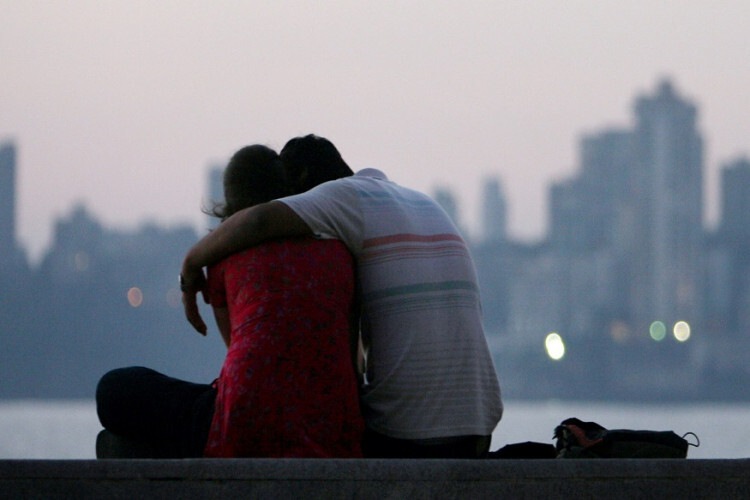
views
Love, they say, makes the world go around. But the guardians of morality are going round and round to keep it shackled. Sanskaris in our country and the orthodox in the Muslim world have a phobia for many things, including something as tender and ennobling as love. Hence their ire against Valentine’s Day.
Every Valentine’s Day, the malaise expresses itself, often violently. The phobia is often viewed as a minor irritant that occurs once a year in our country; the fact, however, is that it is symptomatic of, as we’ll see, deep-seated pathologies. This year’s offerings include Bajrang Dal threatening in Dehradun to make videos of couples indulging in “indecent acts” at public places and a voluntary organization, called Hasyamev Jayate, in Surat coaxing young couples to marry only with their parents’ consent.
But it is not just in India that killjoys wage a jihad against love; it also happens in our neighborhood. At the University of Agriculture in Faisalabad (UAF), in Pakistan’s Punjab province, the authorities have decided to celebrate Valentine’s Day as Sister’s Day and gift headscarves and shawls to its female students. The idea is to promote “eastern culture and Islamic traditions among the youth.”
Vice-Chancellor Zafar Iqbal was quoted as saying, “In our culture, women are more empowered and earn their due respect as sisters, mothers, daughters, and wives.”
Our sanskaris couldn’t have agreed more; by the way, they also only see “sisters, mothers, daughters, and wives” all around; there are no relation-neutral terms like girls and women. Nor are there women doctors, engineers, bankers, businesspersons, pilots, bureaucrats, entrepreneurs.
By the way, Hindutva groups and orthodox Muslims are not the only ones opposed to Valentine’s Day; feminists, who are Left-leaning, are equally hostile to the festival of love. In their scheme of things, Valentine’s Day is everything that they hate from the core of their heart: patriarchy, capitalism, tradition—and love.
Yes, love: anybody who subscribes to a collectivist ideology—be it jingoism, Islamic fundamentalism, socialism, or feminism—sees love with suspicion. All of them—saffron zealots, Islamists, Leftists, feminists—worship the collectivity they are committed to. The collectivity—vishwaguru Bharat, a caliphate, a socialist paradise, a world without or subdued men—is the only reality, the only ideal worth striving for. The rest is folly, even dangerous distraction.

A couple sits on the seafront on the eve of Valentine's Day in Mumbai. (Photo: Reuters)
But what about the individual who makes the collectivity in the first place? Well, the collectivist mind doesn’t have much regard for him; for whatever worth he has it is because of his being part of the collectivity; he has to live and die for it. The collectivity is supreme; the individual’s life is meaningful till the extent it is in the service of the collectivity.
This makes love, especially the carnal love between man and woman, subversive. When in love, a man often finds fulfillment and meaning in the arms of a woman. It also happens the other way around: a woman can find love in the company of a man. In other words, men and women can establish a feeling of communion with each other.
Muhammad Rafi sang for Dev Anand in Guide a most beautiful sad song, Din dhal jaaye haye, raat na jaaye. In one of its stanzas, there is poignant remembrance: “…khud se judaa aur jug se paraaye, hum donon the saath…” (We were apart from ourselves and from the world, we were together…). Such feeling of togetherness is subversive.
From the perspectives of sanskaris, Islamists, and feminists, this is a dangerous situation: how could a couple be allowed to fuse into one personality, when the goal of their life, as that of everybody else, is to submerge themselves into or extinguish themselves for the collectivity? All for the great causes. Vishwaguru Bharat, caliphate, sexless utopia. Whatever. The underlying theme is always the same: individuals and their choices don’t matter.
At the heart of war against love lies this pathology. In a milieu underpinned by prudery and sanctimony, the war often assumes ludicrous proportions. For example, in 2012, the Raman Singh government in Chhattisgarh officially declared Valentine’s Day as Matru-Pitru Divas (Parents’ Day).
In other words, when pious thugs are not threatening youngsters celebrating Valentine’s Day, pompous politicians and holier-than-thou activists are dissuading lovers from getting too close. Old Hindi songs often talk about the zamana (the world) being against love, the agonies that lovers have to face at the hands of samaj (society), and so on. Their truth and relevance becomes evident on every Valentine’s Day.
The author is Editor, Power Corridors. Views are Personal















Comments
0 comment